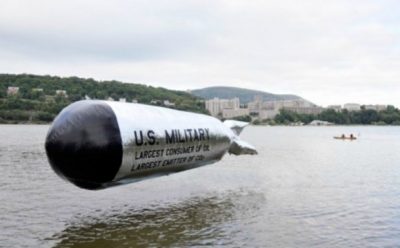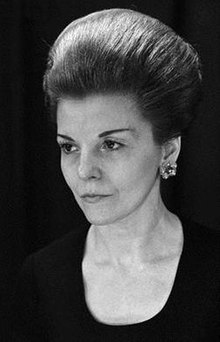Forgotten “Anniversaries” of U.S. Sponsored Military Coups against Democracy

Of relevance to the Venezuelan crisis and US military threats:
Incisive and timely article by Shane Quinn first published by GR on July 22, 2017.
In all these countries, the speaker of House could not be appointed interim president to replace the dictator, because the Parliament had been duly abolished courtesy of Uncle Sam. There was no parliament, there was no speaker of the House, no attempt by Washington to restore democracy, opposition activists were arrested and tortured with the support of the US.
***.
Some anniversaries are widely observed in the West: Japan’s attack on Pearl Harbor, Holocaust Memorial Day, the September 11 atrocities, and so on. Yet there are other undesirable anniversaries that have been largely disappeared.
US-backed forces overthrow Goulart in Brazil (1964)
Left-wing nationalist Joao Goulart became the democratically elected president of Brazil in September 1961, setting alarm bells clattering in the liberal Kennedy administration. Goulart began implementing structural reforms in the massive resource-rich South American country, that would help integrate the general population into society. (1)

Joao Goulart (Source: Wikimedia Commons)
The United States was loathe to sit helplessly by as this movement came within “our hemisphere”, as President John F. Kennedy described it. Goulart, also known as “Jango”, was hostile toward US capitalist democracy that seeks to primarily serve elite powers.
Shortly before his death, Kennedy had been preparing the groundwork to oust Goulart, with the coup (March 31-April 1) occurring less than five months under his successor’s reign, Lyndon B. Johnson. (2) “We just can’t take this one [social movement],” warned Johnson. (3) Goulart’s toppling received crucial CIA funding and arms, while Brazil was placed under a neo-Nazi dictatorship that tortured their people for over 20 years. (4)
CIA terminates the 10-year Guatemalan Revolution (1954)
Guatemala, a small central American nation, remains a ghastly nightmare to this day. The causes for her suffering can be traced to President Dwight D. Eisenhower implementing a CIA-run coup that installed successive military dictatorships. (1) Guatemala had been enjoying a 10-year revolution (1944-54): firstly, under Juan Jose Arevalo, who introduced a minimum wage and increased funding to education. (2)
Arevalo’s democratically elected successor in 1951, Jacobo Arbenz, instituted land reforms to grant property to landless peasants. (3) Such inclusive measures were deemed an unacceptable threat to US hegemony over the Western hemisphere.
Arbenz’ policies threatened the United Fruit Company (UFC), a powerful corporation exploiting Guatemalan workers which had direct ties to Eisenhower’s administration (the Dulles brothers). (4)
The UFC aggressively lobbied Eisenhower, who authorised the CIA to aid a force led by the impending right-wing dictator, Carlos Castillo Armas. With further threat of invasion by American forces, the Guatemalan army eventually refused to fight on – an error of historic proportions. (5) Almost four decades of civil war followed, as successive US-backed dictators committed atrocities such as genocide against the Maya peoples. (6)
Isabel Peron overthrown by US-backed forces (1976)
The 1976 Argentine coup was the sixth, and final, forced government change that took place in the country during the 20th century. The US-backed Argentine Armed Forces installed the most vicious Latin American military dictatorship of all, responsible for tens of thousands of murdered and “disappeared”, under convicted war criminals such as Jorge Rafael Videla and Reynaldo Bignone. (1)
Revealingly, the Nazi-style regime was a favorite of US president Ronald Reagan. (2)

Isabel Martinez de Peron (Source: Wikimedia Commons)
The coup toppled Isabel Peron, the first female leader in world history, wife and successor of deceased ex-president Juan Peron. Henry Kissinger, the US Secretary of State, met with several Argentine military commanders suggesting they crush their enemies before human rights issues become known to the American public. (3)
“We read about human rights problems, but not the context. The quicker you succeed the better,” he said, and not the first time Kissinger (Nobel Peace Prize winner) was implicated in war crimes.
US invasion of Grenada (1983)
The American invasion of the minuscule Caribbean island of Grenada (under President Reagan) drew a scathing international response from the UN General Assembly. (1) It “deeply deplores” the intervention, which “constitutes a flagrant violation of international law”, further condemning “the deaths of innocent civilians… the killing of the Prime Minister [Maurice Bishop].”
The intervention was even opposed by most NATO countries and US allies such as France, Portugal, Australia, Spain and the Netherlands. (2) All irrelevant criticism for elite Western figures that believe the United States should be a law unto its own. The usual pretexts for the invasion of Grenada were put forward by the US government, and obediently relayed by the free press: Grenada was a “Marxist dictatorship” and the US army was on a “rescue mission” to defeat a Cuban military presence defending “this outpost of Soviet imperialism”. (3, 4, 5)
The true reason for the attack? To expel a government not amenable to American hegemonic demands, and that may act as a further example of defiance (after Cuba) – the abysmal after effects for Grenadians was quickly airbrushed from history.
Juan Bosch toppled in the Dominican Republic (1963)
United States interference in the Dominican Republic traces back to the early 20th century of the William Howard Taft and Woodrow Wilson administrations. (1) Wilson, for example, ordered the invasion of the country by US marines in 1916, their presence lasting over six years – an occupation reviled by the Dominican population. (2)

Juan Bosch (Source: Wikimedia Commons)
The democratic election of socialist reformer Juan Bosch in February 1963, replacing a military junta, caused undue concern in elite American circles. (3) Their fears were quickly realised as Bosch undertook progressive steps the Dominican population had never known before (or since), initiating plans to reduce poverty, declaring labor rights, strengthening unions, rights for farmers, and so on.
Bosch was declared “a communist” by pro-US business magnates and members of the army. (4) On September 25, 1963, a group of commanders led by Elias Wessin y Wessin, with crucial US support, expelled Bosch from the country. (5)
Shane Quinn is a frequent contributor to Global Research.

